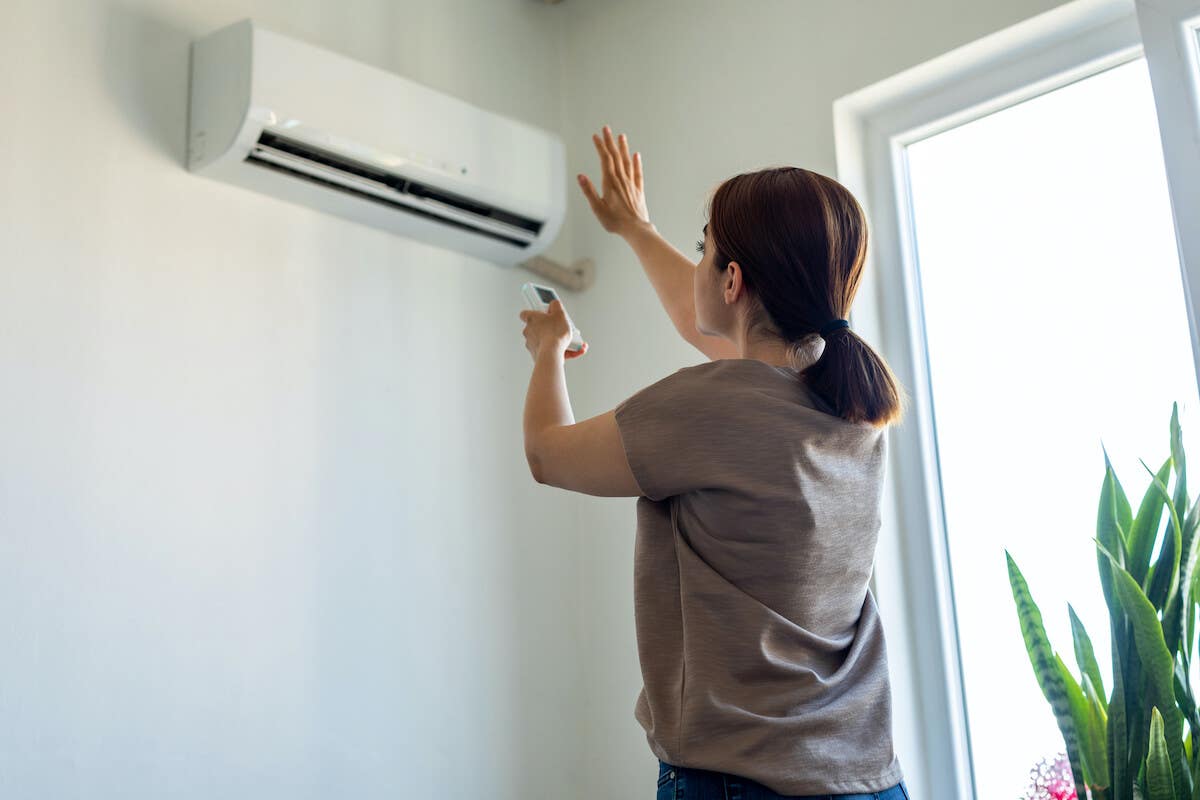Your homeowners insurance may cover damage to your HVAC system. However, this depends on the type of policy you have and the nature of the damage to your system.
Damage to HVAC units is typically covered in one of two coverage parts in home insurance. These are:
-
Coverage A, or your dwelling insurance.
-
Coverage C, or your personal property insurance.
If your HVAC system is considered part of the home, then your dwelling coverage kicks in when the system is damaged. Portable units are more likely to fall under your personal property coverage.
When does home insurance cover HVAC replacement?
For your home insurance policy to cover your HVAC unit, a covered peril has to have caused the loss. Covered perils typically include things like fire or lightning strikes. If the damage is caused by a covered peril – that is, by an incident your homeowners insurance can pay for – then the damage to your AC or heater is probably covered.
Let’s say a direct lightning strike fries your central AC unit. In that case, there’s a good chance your insurance will pay to repair or replace it. That’s because lightning damage is covered by most standard home insurance policies.
The same is true for fire damage. If the unit is damaged as a result of a home fire, then the unit can probably be replaced. Again, this may come out of dwelling coverage or personal property coverage.
However, in almost no case is a home’s HVAC system covered if it’s damaged or quits working as the result of neglect (including inadequate or improper maintenance) or normal wear and tear.
Does home insurance cover air conditioner replacement?
In most cases, central air conditioning systems are considered part of your home, so your insurance covers replacing or repairing it when it’s damaged by a covered peril.
There are some caveats to that. First is the amount of coverage you have and your deductibles. Your insurer only pays up to your coverage limit, minus your deductible.
Next is the type of air conditioner you have. While central air conditioning units are typically categorized as part of the structure of your house, window units are usually considered personal property. In practice, that means that your window unit is less likely to be covered.
Why is that? Because many homeowners policies, like HO3 policies, central AC units are protected by Coverage A, so they’re insured on an open perils basis. This means they’re covered for anything not explicitly excluded. A window unit, on the other hand, is more likely covered as personal property, which is a named perils coverage. Named perils insurance only kicks in for damage caused by events that are specifically listed in the policy.
Every policy is different, though, so check with your agent to find out what kind of coverage you have. In some cases, you may be able to secure coverage by scheduling your window unit specifically in your policy.
Does home insurance cover damage caused by your HVAC?
Up until now, we’ve looked at situations where an event damages your HVAC system. But what happens if your HVAC actually causes the damage? Let’s take a look at a couple of examples to sort things out.
Damage caused by AC units
Air conditioners create water as they operate (as anyone who’s walked under a dripping window unit knows all too well). If your AC unit isn’t properly maintained, that water can get into your home and cause damage. And here’s the thing: if a leak happens because you didn’t properly maintain the unit, your homeowners insurance may not cover the damage.
That’s because part of the contract with the insurance provider is that you must take steps to keep your home in good repair. Fail to do that, and you’ve essentially broken the contract, meaning the insurance company doesn’t have to provide coverage.
Your best bet here is to keep your air conditioner in good working order, even if that means calling in an inspector every season. The cost of an inspection will almost certainly be less than the cost of repairing water damage your unit might otherwise cause.
Damage caused by furnaces
If your furnace causes a fire in your home, your insurance policy likely covers the damage. That’s because fire is a covered peril on most standard homeowners insurance policies. The cost of replacing your furnace? That’s probably not covered.
As with AC units, it’s your job as a homeowner to keep your furnace in good working order. Part of that means making sure there are functioning carbon monoxide and smoke detectors to alert you of any problems before they cause serious damage or put you in danger.
Maintaining your HVAC system
It’s easy to forget about HVAC appliances – which operate very much in the background – until they stop working. But scheduling regular maintenance can save you money on heating and cooling bills and help prevent damage caused by worn-out systems.


